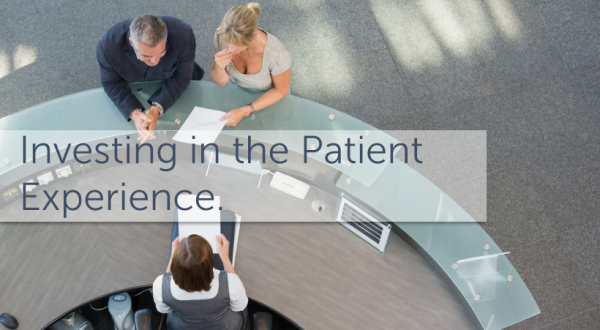
Investing (not MONEY) in Patient Experience Can Help Hospital Revenue
The patient experience is a critical factor that sometimes gets ignored in the hospital setting (or maybe not… but it DOES get forgotten). The primary focus of a hospital is to heal the sick and cure the injured. However, hospitals are also businesses interested in not only covering their costs but making a profit as well. As a result, the patient experience has to be kept as a (top) priority.
The patient experience in any other business would be the customer experience - how the customer feels about how a transaction occurred, whether he or she received good service or not, and whether the whole matter was worth the money paid for the help received. The third part doesn't weigh in as much because many people have health insurance, so they don't realize the out of pocket expenses very much until they hit the Medicare years and the problem with the doughnut hole (a period of expense every year that the federal government requires people to pay out of expense before Medicare covers the higher costs).
Here's the important point to always keep in mind with every interaction with a patient - a happy patient means a smoother treatment and visit. Granted, patients aren't much happy to begin with being sick or in pain when they arrive in a hospital. However, when their pain can be alleviated and the treatment includes as much care as possible, it can make a huge difference in how the patient views the hospital when feeling better. And simple things can make a huge difference. Here's some examples how:
"A happy patient means a smoother treatment and visit."
- Doctors who visit a patient but keep one hand on the door handle send a message that they can't get out of a room fast enough. The patient is taking everything in; a doctor who sits down and spends time to understand the issue or problem wins big points with a patient both at the visit and afterwards as well. Doctors are the front line representing a hospital business aside from nurses. If their bedside manner can be improved, it often results in a demand from patients via referrals, which means more business for the hospital.
- Leaving a patient sitting in a hallway on a chair or a bed after check-in is one of the worst things to do. The person feels helpless, sits for hours, and suffers in pain. Simple triaging steps can provide immediate, preliminary care and review before a doctor arrives. Registered nurses can take a huge amount of this work, again improving the perception of the hospitals work when people are in pain.
- Dismissing the suffering of a patient as something the patient is making up and giving him or her a medicine that turns out to be an over-the-counter drugs and nothing more. Once the patient finds out, he or she frequently feels duped and lied to by a doctor. Medical staff need to instead focus on why the patient is feeling pain. It may identify underlying issues that need a different treatment instead of ignoring. That in turn can likely reduce everyone's costs and turn a chronic problem into a success story.
- Making a point to get financial papers in front of a patient just before a major treatment or procedure is about take place. This type of blatant practice to protect the hospital's financial interests is a fast way to get sued for making a patient do something under duress. Instead, waiting for the patient to be ready to leave is the better approach for financial documentation. Patients are more accepting once treated, and they are more likely to pay their bills timely as well.
- Approaching family in the hospital to ascertain next of kin when the patient is facing a serious condition so as to figure out whom to send an invoice to. There is plenty of information online and publicly available for this purpose. There's no need to make family members feel hunted for contact information when visiting a loved one. This should be entirely avoided. If additional contacts are needed to chase down an account later on, the Internet already provides plenty of information for free or low cost, including relatives.
Doing any or all of the above will help patients feel BETTER about their experience, make a hard time a little less difficult, and ultimately, they’ll come back (and maybe even tell a few friends or family members to go!). Working towards making the patient experience positive will often go farther towards an acceptance of treatment as well as cooperation with the hospital's financial needs. The amazing thing about the patient experience is that making it a positive one does not cost millions of dollars in complex software, personnel, contracts or similar. Instead, a huge impact can be made by just changing personnel's behavior towards patients. Doctors, nurses and personnel who can slow down slightly and remember that principle can go a long way towards boosting the patient experience in the right direction.




